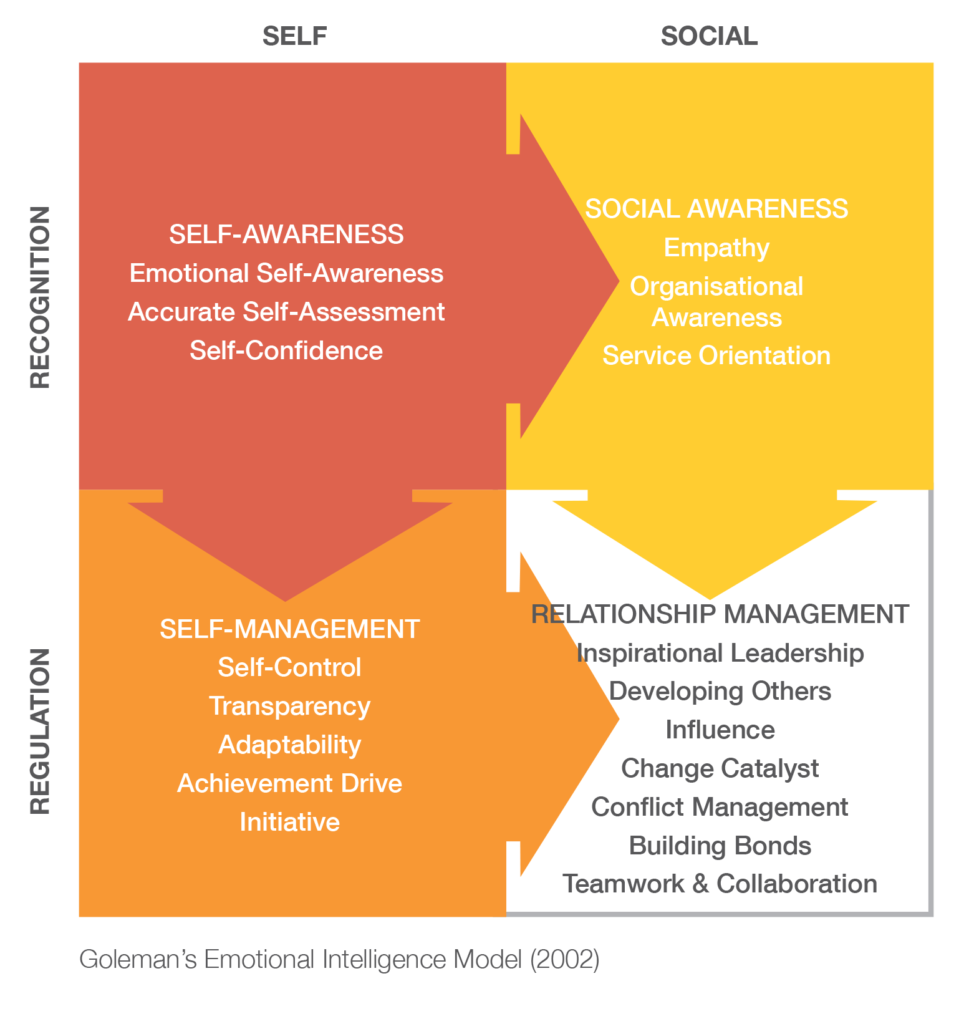According to Goleman (2009), there are five specific components of emotional intelligence. The one that presents the most significant challenge for me is self-regulation. Self-regulation specifically refers to an individual’s ability to be able to express their emotions appropriately. Self-regulation tends to affect someone’s ability to be flexible and adapt to change easily. Further, self-regulation impacts a person’s willingness to engage and manage conflict as well as dealing with difficult situations. Goleman indicates that people with self-regulation skills are high in conscientiousness; these are people who take responsibility for their own actions.
What is hardest to me in terms of self-regulation has to do with the fact that I have a chronic illness that affects my nervous system combined with my post traumatic stress disorder (PTSD). Both of these illnesses affect my ability to regulate my emotions on a physiological level—although I am frequently able to rationally think about my emotions and my emotional responses, my body is often lagging behind. That is to say that I am not quite able to rationalize the way that my body reacts. My plan to grow in this particular area is to attend therapy, continue to take my medications, and receive accommodations when necessary.
Here is a visual aid to help you understand the concepts presented by Goleman (2009).

The picture was retrieved from https://globalleadershipfoundation.com/deepening-understanding/emotional-intelligence/
References:
Goleman, D. (2009). What makes a leader? Harvard Business Review.
[Graphic to illustrate Goleman’s Emotional Intelligence Model]. (n.d.). https://globalleadershipfoundation.com/deepening-understanding/emotional-intelligence/